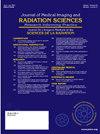A3ReAcH(医疗保健中的自闭症、ADHD和ADHD研究可及性)框架:在放射照相和医疗放射技术中对自闭症、ADHD和ADHD个体进行包容性医疗研究的原则
IF 1.3
Q3 RADIOLOGY, NUCLEAR MEDICINE & MEDICAL IMAGING
Journal of Medical Imaging and Radiation Sciences
Pub Date : 2025-06-30
DOI:10.1016/j.jmir.2025.102009
引用次数: 0
摘要
由于难以获得的方法和系统性偏见,自闭症、多动症和多动症患者经常被排除在医疗保健/放射学研究之外,这使得有充分记录的健康不平等现象长期存在。虽然研究人员能够认识到这一点,但他们可能没有能力有效地解决这个问题。本文介绍了A3ReAcH(自闭症、ADHD和ADHD研究在医疗保健中的可及性)框架,该框架为设计和开展可及性、包容性和参与性研究提供了实用指导。方法通过Emcare、MEDLINE、Social Policy and Practice、CINAHL、psychological and Behavioral Sciences Collection、谷歌Scholar和PubMed检索2019-2024年的同行评议研究。确定了关键主题,并合成了一个框架,该框架与研究生命周期的不同阶段(规划到传播)保持一致。结果共检索到86篇文献,其中方法学研究54篇,原创性研究32篇。关键主题以12项框架的形式提出。A3ReAcH框架概述了实用策略,如使研究团队多样化,确保公平的权力分享,优先考虑参与式方法,以及使研究设计适应神经分化需求。它还强调了无障碍招聘、公平薪酬和包容性传播的重要性。此外,它强调了交叉性在形成神经发散性经验中的作用,并提供了减少研究中的系统性障碍的建议。结论所有的医疗/放射学研究都应包括并尊重神经发散性经验。A3ReAcH框架通过纳入神经分化的声音和消除参与障碍,使研究人员能够进行更公平和可操作的研究。通过整合这些原则,医疗保健/放射学研究人员可以改善参与者体验,提高数据质量,并推动医疗保健/放射学研究的系统性变革,朝着真正代表人口多样性的结果迈进。本文章由计算机程序翻译,如有差异,请以英文原文为准。
The A3ReAcH (Autistic, ADHD and AuDHD research accessibility in healthcare) framework: Principles for inclusive healthcare research with autistic, ADHD and AuDHD individuals in radiography and medical radiation technology
Background
Autistic, ADHD and AuDHD individuals are often excluded from healthcare/radiography research due to inaccessible methodologies and systemic biases, perpetuating well-documented health inequalities. While researchers can recognise this, they may be unequipped to address it effectively. This narrative review introduces the A3ReAcH (Autistic, ADHD and AuDHD Research Accessibility in Healthcare) framework, which provides practical guidance for designing and conducting accessible, inclusive and participatory research.
Method
Two searches of peer-reviewed studies (2019–2024) were conducted using Emcare, MEDLINE, Social Policy and Practice, CINAHL, the Psychology and Behavioral Sciences Collection, Google Scholar, and PubMed. The key themes were identified, and a framework was synthesised that aligns with different stages of the research lifecycle (planning to dissemination).
Results
The searches retrieved 86 articles: 54 methodological and 32 original research. Key themes are presented as a 12-item framework. The A3ReAcH framework outlines practical strategies such as diversifying research teams, ensuring equitable power-sharing, prioritising participatory methods, and adapting research designs to neurodivergent needs. It also emphasises the importance of accessible recruitment, fair compensation, and inclusive dissemination. Additionally, it highlights the role of intersectionality in shaping neurodivergent experiences and provides recommendations to reduce systemic barriers in research.
Conclusion
All healthcare/radiography research should include and respect neurodivergent experiences. The A3ReAcH framework empowers researchers to produce more equitable and actionable research by including neurodivergent voices and dismantling barriers to participation. By integrating these principles, healthcare/radiography researchers can improve the participant experience, enhance data quality, and drive systemic change in healthcare/radiography research, moving towards findings that genuinely represent the diversity of the population.
求助全文
通过发布文献求助,成功后即可免费获取论文全文。
去求助
来源期刊

Journal of Medical Imaging and Radiation Sciences
RADIOLOGY, NUCLEAR MEDICINE & MEDICAL IMAGING-
CiteScore
2.30
自引率
11.10%
发文量
231
审稿时长
53 days
期刊介绍:
Journal of Medical Imaging and Radiation Sciences is the official peer-reviewed journal of the Canadian Association of Medical Radiation Technologists. This journal is published four times a year and is circulated to approximately 11,000 medical radiation technologists, libraries and radiology departments throughout Canada, the United States and overseas. The Journal publishes articles on recent research, new technology and techniques, professional practices, technologists viewpoints as well as relevant book reviews.
 求助内容:
求助内容: 应助结果提醒方式:
应助结果提醒方式:


